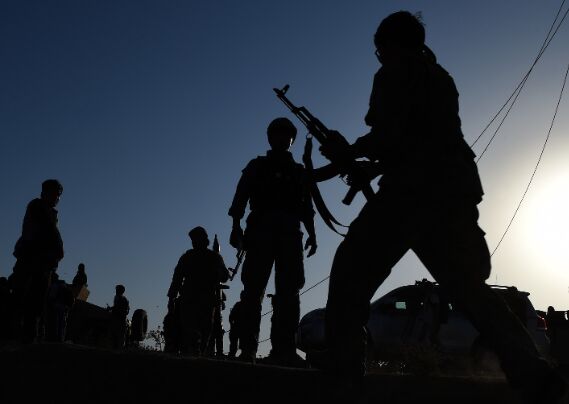A dreadful return
India’s late realisation on the need to talk with the Taliban has created a mess for the country; writes Simran Sodhi

Afghanistan has taken less time to unravel than most would have predicted. The rapid advance of the Taliban across the country, as foreign troops withdraw, has resulted in the Taliban now controlling 65 per cent of Afghanistan. United States President Joe Biden on Tuesday said that he did not regret his decision to leave Afghanistan and also urged the Afghans to fight for their homeland. A clear signal that as far as the US is concerned, they are done with Afghanistan. Whether the US decision was correct or not is another debate, but it seems the war-torn country will now have to face up to a future where the Taliban will be the major stakeholder.
The fallouts from this are grim; a humanitarian crisis where refugees have already started to flee to Pakistan and Iran, a complex regional security situation where actors like Russia, China, Iran, Pakistan, India and other Central Asian nations will seek their spheres of influence, and an emboldened Pakistan. For India, this is a loss in more than mere regional security calculations. India has spent billions of dollars in development projects in Afghanistan and has stood by the governments of former Afghan President Hamid Karzai and now President Ashraf Ghani in their fight against the Taliban. But the position of Ghani himself today is shaky.
The Taliban now claim to control eight provincial capitals and the recent loss of Faizabad saw Ghani quickly reaching Mazar-i-Sharif to reach out to different warlords to put up a joint fight against the Taliban. Meanwhile, in Doha, the talks have proved to be nothing short of a sham. The US State Department Spokesperson Ned Price said Wednesday that the attacks were against the 2020 agreement where the Taliban had committed to a peace accord that would lead to a 'permanent and comprehensive' ceasefire. With the ground situation rapidly deteriorating, one gets a sense that Doha and Washington DC are rapidly losing touch with reality.
The big players met to discuss the future of Afghanistan. Russia, the US, China and Pakistan, also known as the Troika Plus on Afghanistan are currently meeting in Doha and the latest reports suggest that India has managed to squeeze into the talks, after being left out in the cold initially. For India, a late wake-up call to the reality on the ground in Afghanistan will result in a heavy price to be paid in the coming years. For years, India refused to open any channels of communication with the Taliban and finally, when it was forced to do so, the high table was already too crowded. Pakistan's support of the Taliban has resulted in Pakistan being accepted today as one of the main players in this equation. India's very legitimate concerns that greater control of Afghanistan by Pakistan will probably result in increasing terrorist attacks on India have seen a slide down, as globally the idea is now to figure out a way to deal with the return of the Taliban. It is also significant to note here that today the Taliban are negotiating from a position of strength, having tasted military success in Afghanistan. Many analysts point out the Taliban can now boast of having defeated the mighty US Army and its NATO allies and that will be a powerful call for other jihadists to join the movement. For India, this spells disaster and that is an understatement. The biggest policy mistake India has made has been to live in its own bubble, refusing to acknowledge the rise of the Taliban, whom India was always loath to even recognise, and to start negotiating with them.
The Taliban today have also attained a kind of international legitimacy, one by holding the talks in Doha and secondly by the recent Chinese embrace. In late July, the Chinese State Councillor and Foreign Minister Wang Yi met a delegation of nine Afghan Taliban representatives. China also used this meeting to convey to the world its acceptance of the Taliban as a legitimate political force in Afghanistan. This embrace will again cost India greatly as the China-Pak nexus will now be strengthened to include an Afghanistan which desperately needs to build itself economically.
The end of August is the official deadline for US troops to leave Afghanistan but the war-ravaged nation has already been abandoned. President Biden on Tuesday was quick to point out that thousands of American lives were lost in the conflict in the last 20 years and more than one trillion dollars were spent. His rationale was simple, the Afghans will now have to deal with this. But sadly, it's not that simple. At the end of the day, this war and this mess will not be dealt with by the Afghans alone. There will be Chinese, Russian, Pakistani, Iranian fingerprints all over the map soon with India trying hard to stay relevant. The security implications will not just be regional but global. 26/11 is a grim reminder of how terrorism today is a global challenge and an unstable Kabul can result in an unstable world.
The return of the Taliban is now a foregone conclusion. They don't seem to have evolved much, their treatment of women, their attitude towards education and their allegiance to the Islamic State remain intact. What will be worth watching over the next few months will be if the rest of the world has changed in these last 20 years and if the regional players can come together to forge some sort of a peaceful resolution in Afghanistan.
Views expressed are personal



